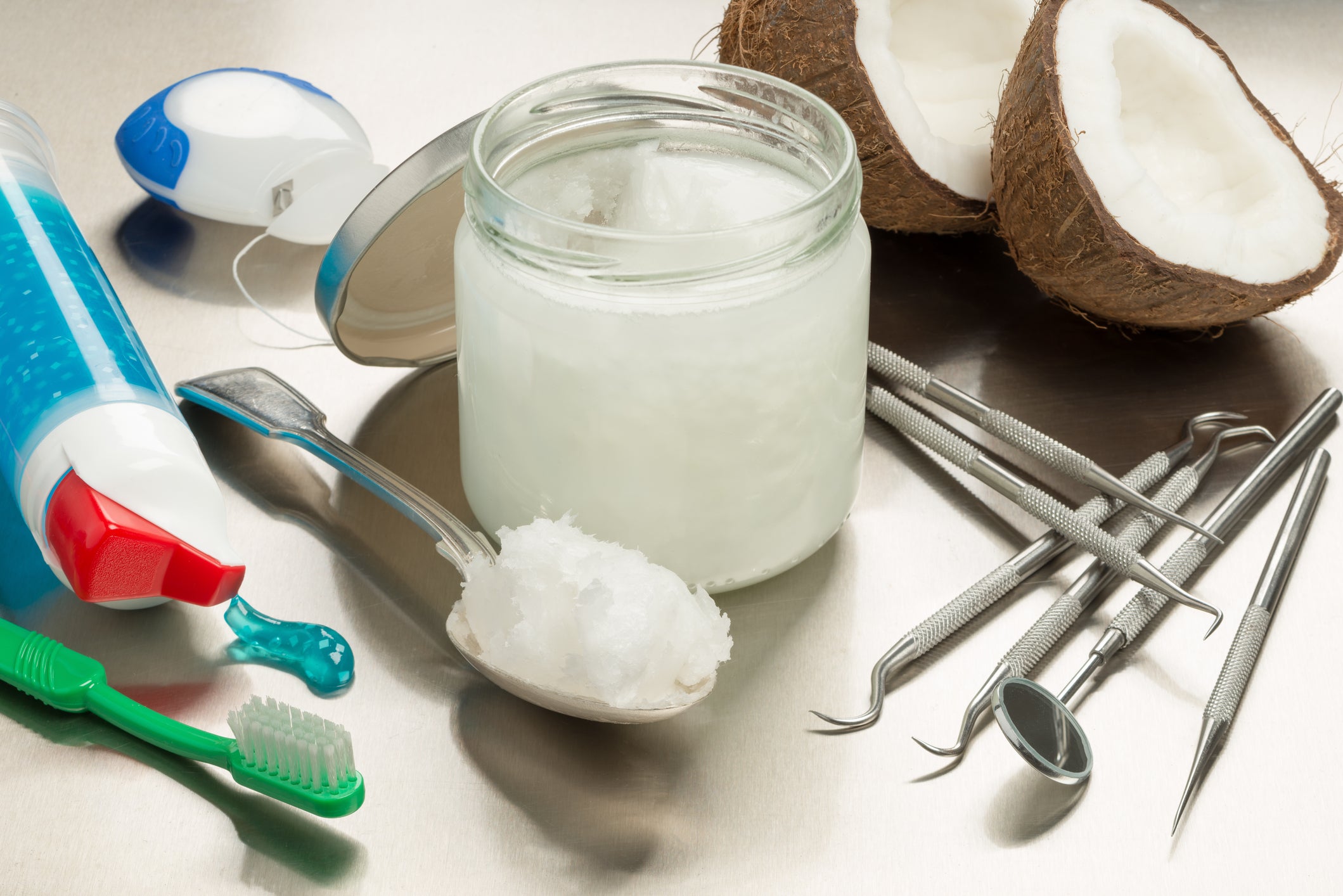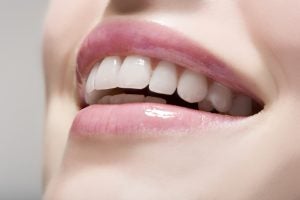-
Does Coconut Oil Pulling Actually Work?

Have you heard of oil pulling? Essentially, it’s the practice of swirling oil around your mouth and then spitting it out. Why do people do this, and is it actually a good idea?
The practice of oil pulling originated as a folk remedy, part of traditional Ayurvedic medicine in ancient India. People practicing oil pulling use sunflower oil, sesame seed oil, or, most frequently, coconut oil. This oil is swirled around the mouth for somewhere between five and twenty minutes, long enough to be swished all over the teeth and mouth, and then it is spit out into the sink or trash can.
Proponents of oil pulling claim that it removes toxins and bacteria from the body, pulling them out through the gums and mouth. Many different benefits are attributed to oil pulling, and advocates claim it can whiten teeth, treat tooth decay, eliminate bad breath, heal bleeding gums, prevent cavities, heal the sinuses, and even prevent heart disease. Some go even further, saying it can help with allergies and asthma, chronic fatigue, diabetes, migraine headaches, and acne.
If these claims seem a little over the top to you, you have good instincts. From a scientific standpoint, there’s very little evidence to back up these claims. The ADA (American Dental Association) doesn’t recommend it because of a lack of science; there just haven’t been an adequate number of properly conducted studies to confirm its efficacy.
On the other hand, there is research to show that oil pulling can have one particular benefit for your oral health. Some studies have indicated that oil pulling with coconut oil can significantly reduce the number of Streptococcus mutans bacteria in your mouth. This is good news, because S. mutans is one of the primary factors in plaque buildup and tooth decay. So, while oil pulling is unlikely to be the cure-all some claim it to be, by removing some bacteria from your mouth it can reduce your risk of tooth decay, gum disease, and bad breath.
Does this mean you should try it? It’s up to you. There’s very little risk involved in oil pulling, as long as you use a reputable oil and then spit it out and don’t inhale it. Here’s the most important thing to remember, though: oil pulling is no substitute for good dental hygiene. Try it if you’re interested, but don’t stop brushing your teeth at least twice a day and flossing at least once.
When you’re looking for excellent dental care and advice you can trust, choose the practice that was voted best dentist in NYC! At Park 56 Dental Group, we offer pediatric, prosthodontics, endodontics, oral surgery, Invisalign®, emergency, and sedation dentistry, all at the highest level of treatment. We serve the Midtown, Central Park, Upper East Side, Park Avenue, and all surrounding Manhattan and New York areas, with a patient-centered practice that has hours to fit your schedule. Schedule your complimentary consultation today by contacting us online or calling us at (212) 826-2322.
-
Oral Cancers of Which to Be Aware

You know that visiting your dentist regularly can help protect against cavities, but did you know that these regular checkups can also help protect you from cancer? During a routine dental visit, your dentist will screen you for signs of oral cancer. This is important, because the earlier cancer is detected, the easier it is to fight. Do you know about the different types of oral cancers?
- Lip Cancer: The most common oral cancer, lip cancer primarily affects men. People sometimes miss the common symptoms of lip cancer because they think it’s a cold they can’t shake or a toothache. Be vigilant for signs of lip cancer, including a sore on the lip that doesn’t heal, persistent lip pain or numbness, a lump, thickening, or white or red patch on the lip, or a neck mass. Surgery is often the first step in treating lip cancer, but it’s also treated with radiation therapy, chemotherapy, and targeted drug therapy.
- Mouth Cancer: This cancer can develop in any part of the mouth, including the tongue, gums, and lips. As with other types of oral cancer, symptoms can seem like a cold that won’t go away. They also include continual tongue or jaw pain, a thickening or lump inside the mouth, a red or white patch on the gums, tongue, tonsil, or the mouth’s lining, or trouble swallowing or chewing. It might be hard to move your jaw or tongue. If surgery is performed to remove a tumor from the mouth, it may be necessary for the surgeon to reconstruct part of the face afterward. Doctors also use radiation, chemotherapy, immunotherapy, and targeted drug therapy to fight mouth cancer.
- Tongue Cancer: Tongue cancer forms in the front two-thirds of the tongue. If cancer forms in the back third of the tongue, it’s considered a kind of head and neck cancer. In addition to the typical oral cancer symptoms, tongue cancer causes tongue or jaw pain, a thickening or lump in the mouth, a sore throat, or the feeling that something is stuck in the throat, difficulty chewing or swallowing, or a white or red patch inside the mouth. Sometimes tumor resection for tongue cancer can be minimally invasive. Chemotherapy, radiation, and targeted drug therapies are also treatment options.
How can you reduce your risk of oral cancers? A healthy lifestyle can help. Don’t smoke or use any other tobacco products, and limit your alcohol consumption. Maintaining a healthy weight, eating a nutrient-dense diet, and protecting yourself from UV rays are all things that help your overall health and lower your risk of oral cancer.
At Park 56 Dental Group, we offer pediatric, prosthodontics, endodontics, oral surgery, Invisalign®, emergency, and sedation dentistry, all at the highest level of treatment. We serve the Midtown, Central Park, Upper East Side, Park Avenue, and all surrounding Manhattan and New York areas, with a patient-centered practice that has hours to fit your schedule. Schedule your complimentary consultation today by contacting us online or calling us at (212) 826-2322.
RECENT POSTS
categories
- Uncategorized
- Cosmetic Dentistry
- Veneers
- Healthier Teeth
- Teeth Whitening
- Dental Health
- Video
- Dental Emergencies
- Invisalign
- Dental Implants
- Root Canal
- Sedation Dentistry
- Infographic
- Dental Crowns and Bridges
- Dental Anxiety
- Gum Disease
- COVID-19
- Bad Breath
- New York Dentist
- Cut out sugar
- General Dentistry
- Oral Health
- Oral Cancer
- Dry Mouth
- Gum Health
- Toothache
- Dental Sealants
- Cavities
